Finding and organizing your Shopify tax documents feels like solving a puzzle with missing pieces. While Shopify stores your financial data, it's scattered across multiple reports, forcing you to manually piece together sales, refunds, fees, and tax information.
This fragmented approach creates serious problems at tax time:
- You waste hours downloading and reconciling different reports
- Manual data entry introduces costly errors and compliance risks
- Essential information gets overlooked, leading to tax overpayments
- Reconciling payouts to bank statements becomes a nightmare
For most sellers, this administrative burden steals valuable time that could be spent growing your business. But it doesn't have to be this way.
This guide shows you exactly how to access your Shopify tax documents, plus a smarter solution that automates the entire process with Link My Books.
Key Takeaways from this Post
Shopify does provide the data you need, but it’s scattered and tedious to process.
Most sellers spend hours reconciling data across fees, refunds, payouts, and sales.
Link My Books automates the entire Shopify tax reporting process, syncing your sales data into Xero or QuickBooks, saving time, reducing errors, and staying compliant.







Where Most Sellers Go Wrong with Shopify Tax Documents
Too many Shopify sellers think downloading a sales report is enough for filing taxes. But:
- Reports are fragmented – you need multiple files to see the full financial picture.
- Manual work invites errors – mismatched tax rates, missing refunds, and duplicated entries are common.
- No COGS or fee clarity – leaving you with unreliable profit numbers.
Even worse, most sellers rely on their accountants, who might not be e-commerce specialists, leading to overpaid VAT or missed compliance requirements.
At Link My Books, we believe your time is better spent scaling your store, not fixing spreadsheets. So here’s how to do it both ways, manually (if you must), and the smarter way: automated with Link My Books.
There’s a Smarter Way to Handle Shopify Bookkeeping for $0
Manual processes kill your time and introduce risk. Link My Books eliminates both. Instead of exporting raw reports and manually accounting for tax, you can:
- Automatically import all sales, fees, and tax data from Shopify
- Categorize transactions correctly for tax and accounting
- Post directly into Xero or QuickBooks
- Export tax-ready docs
Automate the Entire Process with Link My Books
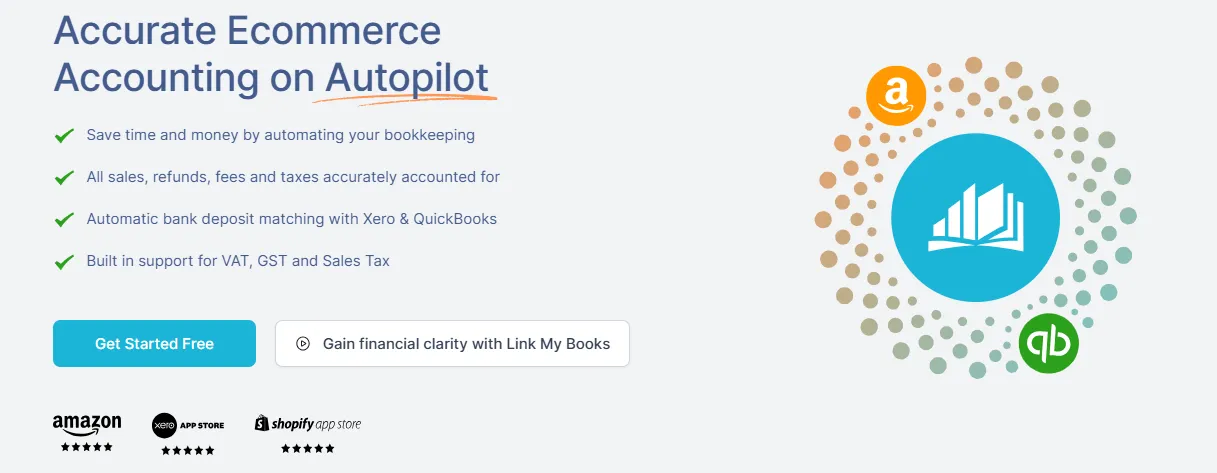
No more copy-paste errors, no missed Shopify VAT, overpaid Tax and wasted weekends.
Here’s how to do it:
Step 1: Connect Your Shopify and Accounting Platforms
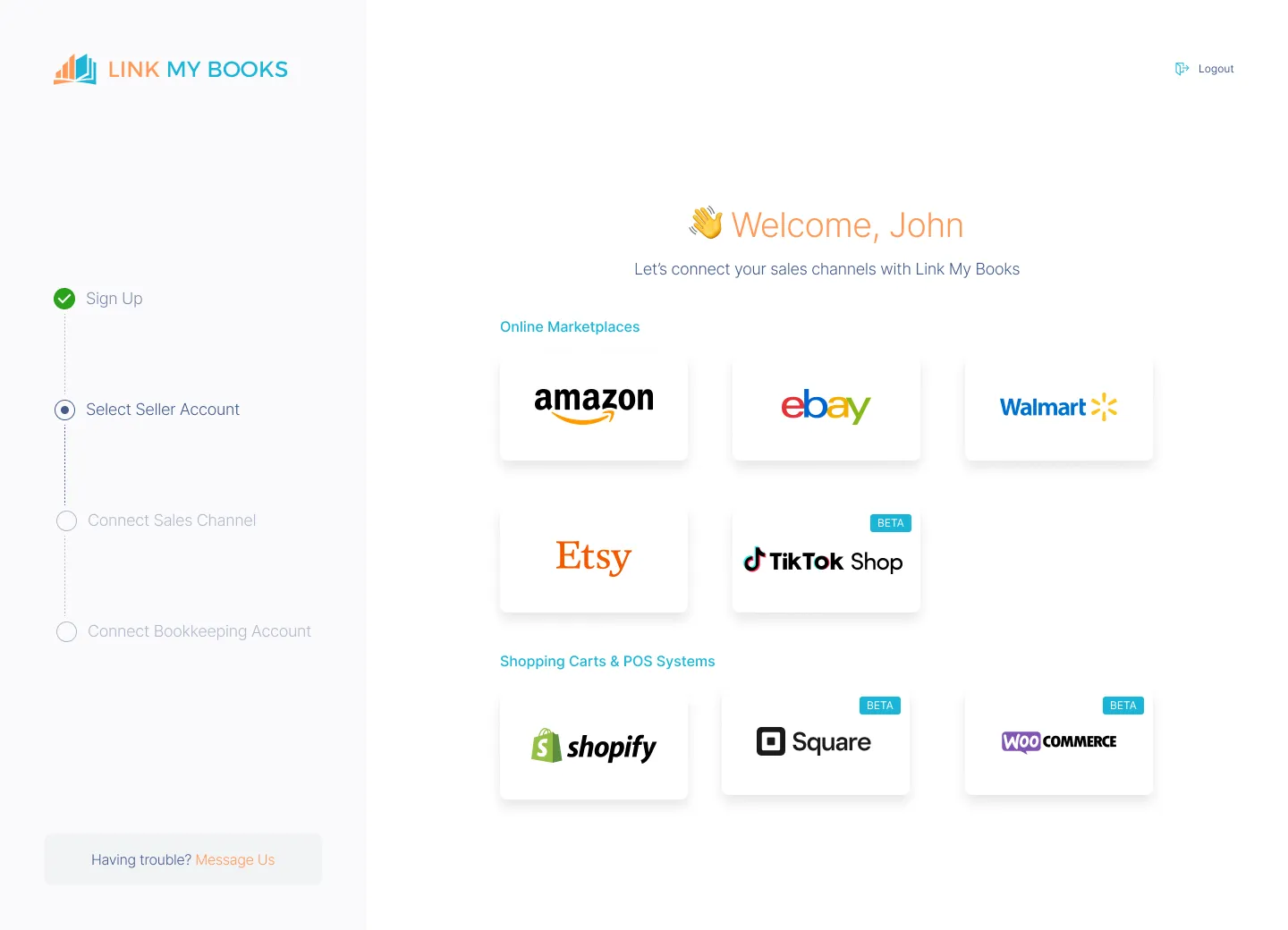
- Sign up for Link My Books and link your Shopify store.
- Then, connect your Xero or QuickBooks account.
- Set your tax preferences once, and Link My Books applies them automatically from there.
Step 2: Pull In Your Data Automatically

- Link My Books imports every Shopify sale, refund, fee, and tax in real time.
- You’ll never miss a transaction or misreport a payout again.
Step 3: Clean, Categorized Summaries in Your Accounting Software
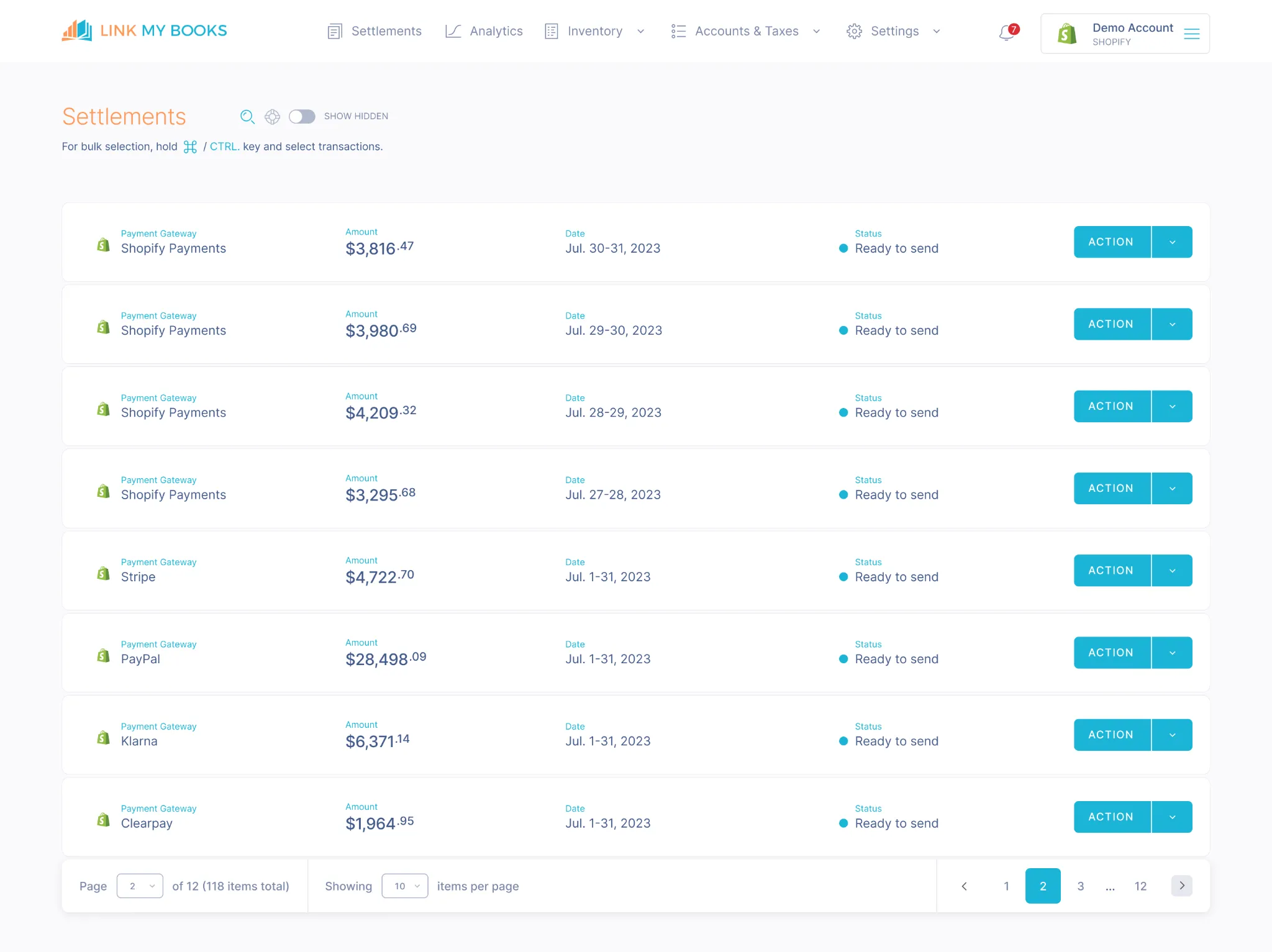
- Transactions are automatically grouped and categorized, ready for review.
- COGS tracking is included, so you get an accurate view of your profit margins.
Step 4: Reconcile with a Single Click
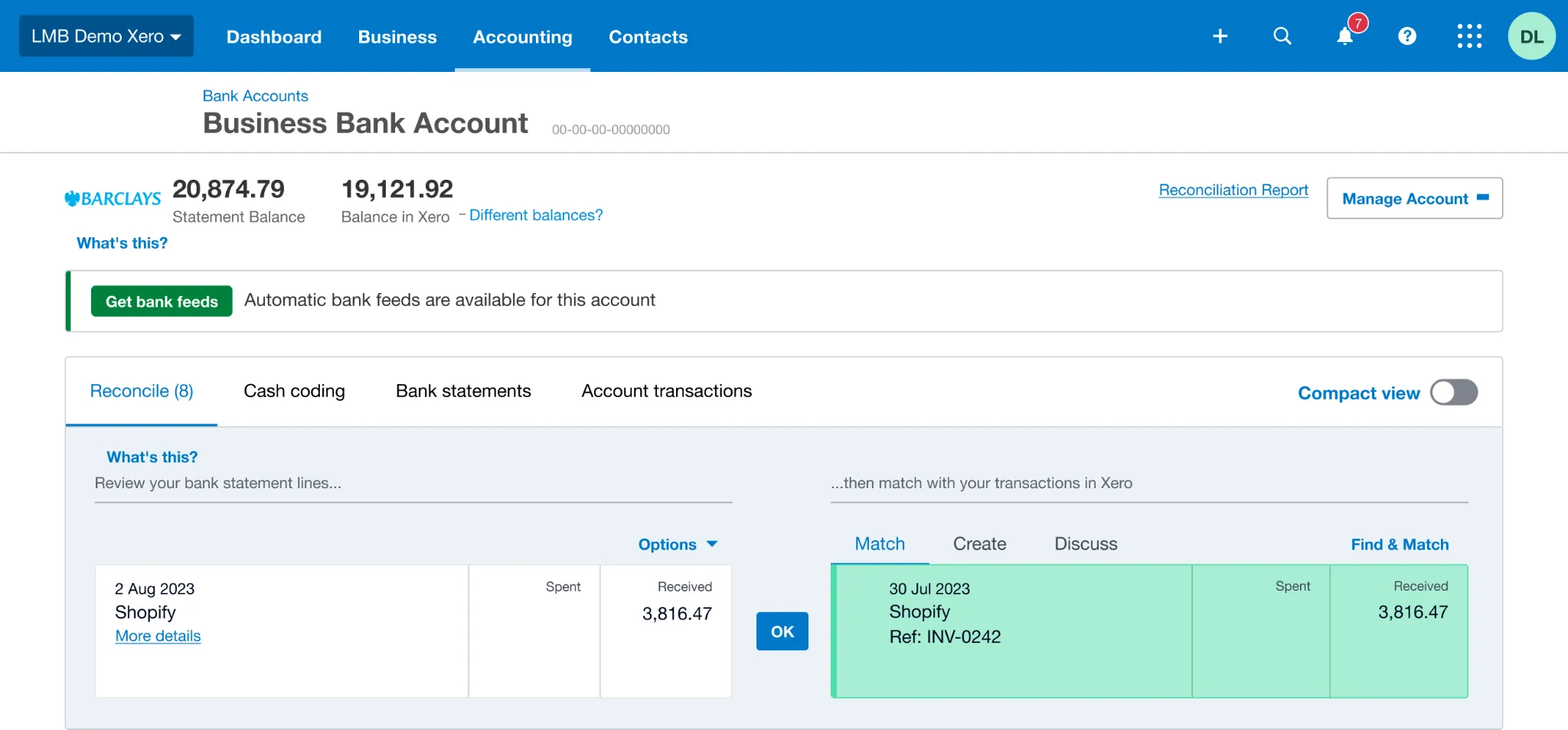
- Each Shopify payout is matched directly with your bank deposits.
No spreadsheets. No stress. No room for human error.
🔹 With Link My Books, your Shopify bookkeeping is fully automated, giving you back hours of time each month.
And you can try it out for free, you don’t even need a credit card!

But if you still insist on doing it the manual way, here’s how:
How to Get Your Tax Documents on Shopify
- Access Shopify Reports
- Filter and Download Sales Reports
- Locate Your 1099 (US sellers)
- Reconcile Fees, Refunds, and Payouts
- Simplify It All with Link My Books
Step #1: Access Shopify Reports
- Go to Shopify.com, and log into your store
- Log into your Shopify Admin
- Go to Analytics > Reports
- Under Finances, click Sales Finance Reports
Step #2: Filter and Download Sales Reports
What you need:
- Total Sales
- Refunds
- Shipping
- Taxes Collected
Use the date filter to select the relevant tax year (e.g., Jan 1, 2025 – Dec 31, 2025) and export your report as a CSV.
Step #3: Locate Your 1099 (US Sellers)
For US sellers using Shopify payments:
- Navigate to Settings > Payments > Shopify Payments
- Scroll to Tax documents
- Download your 1099-K if you processed over $20,000 in sales and 200+ transactions
Step #4: Reconcile Fees, Refunds, and Payouts
This is the part where things fall apart:
You’ll need to:
- Match Shopify reports with bank deposits
- Include transaction fees, refund adjustments, and chargebacks
- Confirm VAT or sales tax collected across different regions
If you're managing multiple regions, currencies, or tax obligations, this step becomes a massive time suck.
How Link My Books Makes Taxes and Accounting for Shopify Simple

Instead of downloading and reconciling reports, Link My Books connects your Shopify store to Xero or QuickBooks and handles everything behind the scenes.
✅ Auto-imports sales, fees, taxes, and refunds
✅ Accurately applies VAT or sales tax rates based on the customer location
✅ Breaks down every payout into clean summaries for easy reconciliation
✅ Tracks COGS and profit margins in real time
✅ One-click reconciliation - no spreadsheet mess
With Link My Books, you can reclaim hours each month by automating your Shopify bookkeeping from end to end.
It syncs seamlessly with Xero and QuickBooks and comes backed by a UK-based support team of qualified accountants who specialize in e-commerce. Whether you're setting up, reconciling payouts, or troubleshooting data mismatches, they’re on hand to help you get the most out of your dedicated Shopify accounting software and avoid the costly mistakes that come with DIY accounting.
Here’s what to expect:
Automated Financial Sync

Link My Books syncs all Shopify sales data, including orders, fees, and refunds, directly into Xero.
You no longer need to transfer Shopify transactions into your accounting software manually. The system does it for you automatically, saving hours of repetitive work.
This reduces errors and ensures all transactions are accurately recorded, freeing up your time to focus on growing your business.
Tax-Compliant Invoices

Link My Boks breaks down all your payouts from Shopify into sales, refunds, fees, and sales tax. This simplifies audits and ensures your financial records are always up-to-date and compliant.
Accurate Sales Tax Calculations
Link My Books takes your total sales tax amount provided by Shopify and accounts for it in your bookkeeping.
This eliminates the stress of calculating taxes manually, helping you avoid costly compliance mistakes and stay organized for tax filings.
Payout Reconciliation

You can easily reconcile Shopify payouts in Xero with one click. Link My Books matches the payouts received in your bank account to the related transactions in Xero, ensuring everything adds up.
This keeps your books balanced without the hassle of finding and fixing mismatched transactions.
Multi-Currency Support
Link My Books handles transactions in multiple currencies, converting them into your base currency for accurate accounting. If your Shopify store accepts payments in multiple currencies, Link My Books ensures all transactions are recorded correctly in Xero’s base currency.
This simplifies global sales management, avoiding confusion over exchange rates and helps you maintain accurate records.
Cost of Goods Sold (COGS) Management
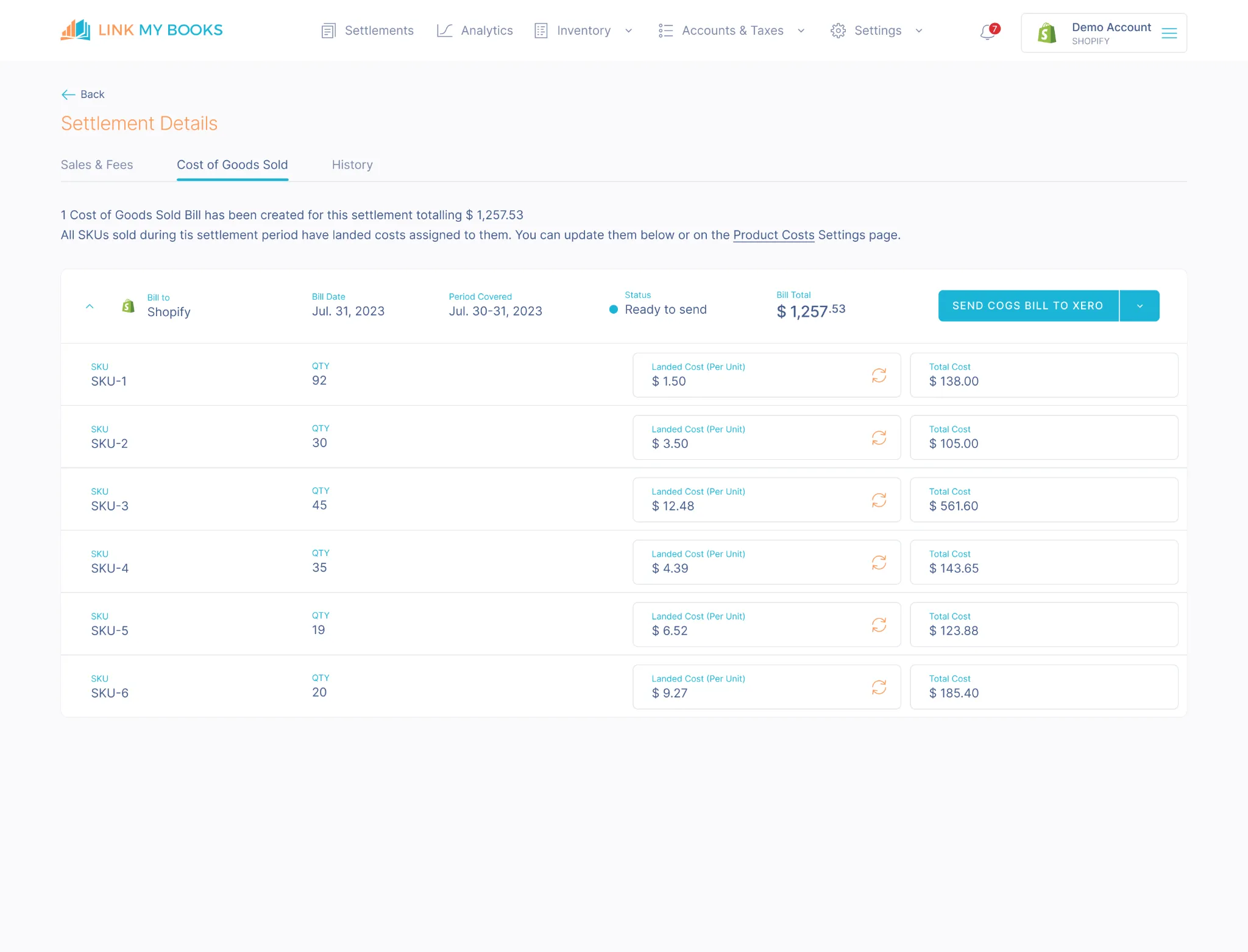
Link My Books tracks and manages your Cost of Goods Sold within Xero. COGS tracking gives you insights into how much you’re spending on producing or sourcing your products.
This ensures your profit margins are calculated accurately, helping you understand the true profitability of your store.
Start your free trial today and make Shopify tax reporting simple, accurate, and hands-off.

🗣️ “Link My Books has been a game changer for our business.” – Shopify Seller, UK
Essential Shopify Tax Documents to Know
Common Challenges with Shopify Tax Documents
Native Shopify reports fall short when it comes to real-world accounting, compliance, and time management. Here’s where most sellers hit a wall:
Sales don’t match deposits
What you see in your Shopify dashboard rarely matches what lands in your bank. That’s because payouts are net of fees, refunds, taxes, and adjustments. Without breaking everything down, reconciling becomes guesswork, and your books won’t balance.
You overpay VAT
Shopify doesn’t separate your zero-rated, standard, and reduced-rate sales. If you apply a flat tax rate across the board, you risk overpaying VAT, especially common for UK sellers dealing with a mix of physical and digital goods.
Manual reconciliation takes hours
To get an accurate report, you need to cross-reference sales, refunds, shipping income, discounts, and multiple fee types. Multiply that by 12 months and several sales channels, and you’re looking at dozens of hours, and dozens of chances to get it wrong.
Accountants aren’t e-commerce specialists
Most sellers assume their accountant will handle Shopify tax reporting, but unless they specialize in e-commerce, they’re likely applying the wrong logic. Marketplace facilitator rules, multi-region VAT, or Shopify's handling of split payments often get missed.
Why Do You Need Shopify Tax Documents?
Shopify doesn't hand you a neat little tax packet. It hands you raw data, scattered across dashboards, hidden in payout reports, and split across sales, refunds, and shipping fees. If you're not prepared, you're either overpaying, underreporting, or spending hours trying to untangle it all.
Here’s why these documents actually matter:
For tax compliance
Whether you're filing with HMRC, the IRS, or another tax authority, clean, accurate documentation isn’t optional. It's your proof of income, tax collected, and what you owe, and it must be broken down by location, tax type, and reporting period.
For accurate profit reporting
Gross sales don’t tell the whole story. To get a true sense of your profit margins, you need visibility into all the moving parts: fees, refunds, chargebacks, tax liabilities, and shipping costs. Without this, you're flying blind.
For business insights
Your tax documents double as performance data. Alongside sales reports and transaction reports, they help you spot your best-selling products, most profitable markets, and customer return patterns. Without organizing and understanding these numbers, it’s hard to scale efficiently or make informed decisions.
Let me know if you'd like this turned into a visual block or comparison table, could work well for skimmers.
FAQ on Shopify Seller Sales Tax Documents

Will Shopify send me a 1099?
- Yes, if you're a US seller using Shopify Payments and meet the IRS threshold.
Where do I get my 1099 from Shopify?
- Settings > Payments > Shopify Payments > Tax Documents.
How often are Shopify tax reports updated?
- Real-time, but monthly and yearly exports are recommended for clean bookkeeping.
How much do I have to make on Shopify to file taxes?
- In the US, the 1099 threshold is $20,000 in gross sales and 200 transactions. In the UK, VAT registration is required after £85,000 in revenue.
Does Shopify automatically take out sales tax?
- In some regions (like the US), Shopify collects and remits taxes depending on your setup. In the UK/EU, the seller is typically responsible for VAT.
Simplify accounting for Shopify with Link My Books

Shopify’s built-in reports weren’t designed for accounting, they were built for surface-level analytics. But when it’s time to file taxes, reconcile payouts, or track VAT across regions, that surface-level view doesn’t cut it.
Without proper transaction reporting, you’re flying blind.
That’s why more sellers are switching to Link My Books, a tool that transforms messy Shopify exports into clean, tax-ready summaries, synced directly to Xero or QuickBooks.
If you’re done wasting time on CSV downloads, spreadsheet clean-ups, or second-guessing your VAT returns, here’s what Link My Books does for you:
- Connects to Shopify, Xero, and QuickBooks in minutes
- Maps every sale, fee, refund, and tax to the right account automatically
- Reconciles payouts with one click, no manual matching
- Reduces bookkeeping from hours to minutes each month
You don’t have to do it the hard way anymore.
Avoid the death-by-spreadsheet scenario. 👉 Try Link My Books Free – No Credit Card Required!













.webp)




.png)